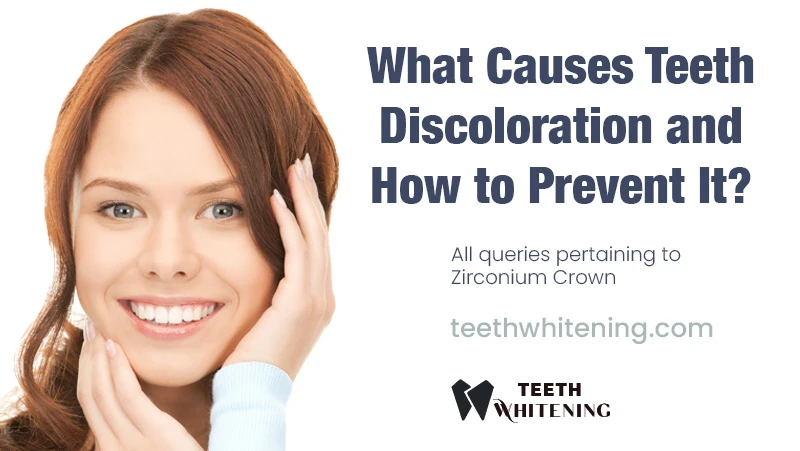- 15/01/2025
Understanding the Risks and Side Effects of Teeth Whitening
While teeth whitening is generally safe, it’s essential to be aware of the potential risks and side effects.
- 15/01/2025
- Category: Overview
Understanding the Risks and Side Effects of Teeth Whitening
Meta Description: Learn about the risks and side effects of teeth whitening, including sensitivity, enamel damage, and gum irritation, and how to minimize them.
Introduction
Teeth whitening is a widely used cosmetic dental treatment, but like any procedure, it comes with potential risks and side effects. While most whitening treatments are safe when done correctly, understanding these risks can help you make informed decisions and protect your oral health. This guide explores the common side effects of teeth whitening and how to minimize them.
Common Risks and Side Effects of Teeth Whitening
Tooth Sensitivity
One of the most common side effects of teeth whitening is sensitivity, which occurs when the bleaching agents penetrate the enamel and reach the dentin or tooth nerves.
- Causes: Whitening agents dehydrate the teeth temporarily, exposing nerve endings.
- Duration: Sensitivity usually subsides within a few days after treatment.
- Prevention: Use desensitizing toothpaste before and after whitening, and consult your dentist if sensitivity persists.
Gum Irritation
Improper application of whitening products can lead to irritation of the gums or soft tissues.
- Causes: Contact with bleaching agents or trays that don’t fit properly.
- Symptoms: Redness, swelling, or a burning sensation.
- Prevention: Ensure proper application, use custom-fitted trays, and follow product instructions carefully.
Enamel Damage
Overuse or misuse of whitening products can weaken enamel, making teeth more susceptible to decay and discoloration.
- Causes: Using abrasive whitening products or exceeding recommended usage.
- Symptoms: Increased sensitivity and a chalky appearance on the tooth surface.
- Prevention: Limit whitening sessions and choose products approved by dental professionals.
Uneven Whitening
Teeth whitening may not produce uniform results, especially if you have dental restorations like crowns or veneers.
- Causes: Whitening agents only work on natural teeth, not on artificial materials.
- Prevention: Discuss alternatives with your dentist if you have restorations.
Overuse of Whitening Products
Excessive whitening, often referred to as "bleachorexia," can lead to long-term damage.
- Symptoms: Translucent or overly white teeth, enamel erosion, and increased sensitivity.
- Prevention: Follow recommended treatment intervals and avoid excessive use of at-home products.
Risks for Specific Groups
People with Existing Dental Issues
- Cavities or Cracks: Whitening agents can penetrate and irritate the tooth pulp, causing pain.
- Receding Gums: Exposed roots are not protected by enamel, making them highly sensitive to bleaching agents.
- Prevention: Address underlying dental problems before starting whitening treatments.
Pregnant or Nursing Women
- Risks: Limited research on the safety of whitening during pregnancy or breastfeeding.
- Prevention: Most dentists recommend postponing whitening treatments during this time.
Tips to Minimize Risks and Side Effects
- Consult a Dentist:
- Always seek professional advice before starting any whitening treatment, especially if you have dental concerns.
- Use Reputable Products:
- Choose products approved by dental associations or prescribed by a dentist.
- Follow Instructions:
- Adhere to usage guidelines and avoid leaving whitening agents on teeth longer than recommended.
- Prepare Your Teeth:
- Use desensitizing toothpaste for a week before treatment to reduce sensitivity.
- Take Breaks Between Sessions:
- Allow time for your teeth to recover between whitening treatments.
FAQs About Teeth Whitening Risks
Can Teeth Whitening Damage My Teeth Permanently
No, teeth whitening is unlikely to cause permanent damage when done correctly. However, overuse or improper application can weaken enamel and increase sensitivity. Always follow professional recommendations to ensure safe results.
Is Sensitivity After Whitening Normal?
Yes, mild sensitivity is common and usually temporary, lasting a few days after treatment. Using desensitizing toothpaste and avoiding hot or cold foods can help alleviate discomfort.
Can Whitening Products Harm My Gums?
Whitening agents can irritate gums if they come into contact with the soft tissues. Using custom-fitted trays and applying products carefully can minimize this risk.
How Often Can I Whiten My Teeth?
Professional whitening treatments are typically safe to repeat every 6–12 months. At-home kits should be used as directed, often no more than once every few months.
Are Natural Whitening Methods Safer?
Not always. Abrasive methods like charcoal or acidic substances like lemon juice can erode enamel, causing more harm than good. Consult your dentist before trying any natural remedies.
Conclusion
While teeth whitening is generally safe, it’s essential to be aware of the potential risks and side effects. By following proper guidelines and consulting a dental professional, you can minimize these risks and achieve a brighter smile without compromising your oral health. Prioritize safety and moderation to enjoy long-lasting results with confidence.










